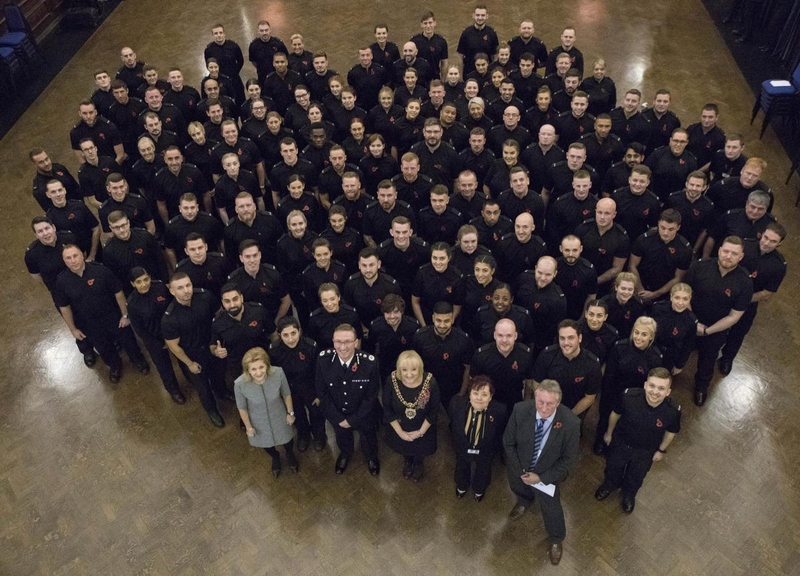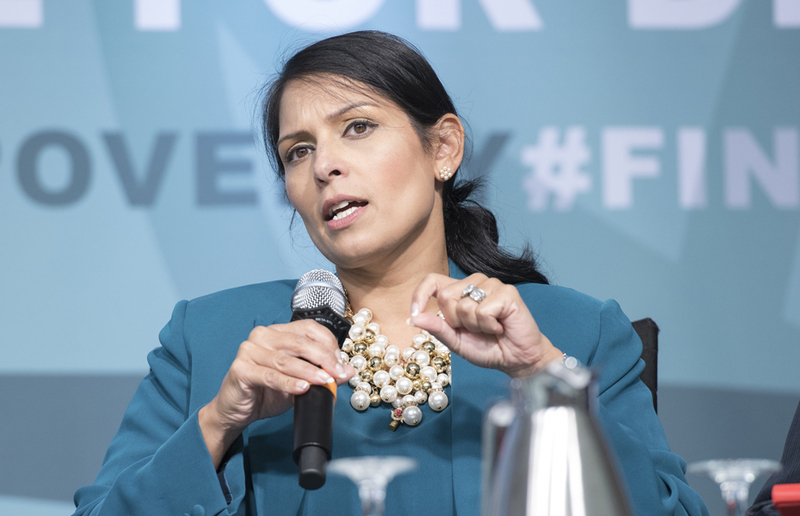GMP launches specialist Violence Reduction Unit
A new taskforce has been launched to address violent crime across Greater Manchester.
The Violence Reduction Unit brings together Greater Manchester Police (GMP), National Probation Service, health and education professionals, youth justice and local authorities to address the underlying causes of violent crime and work together with communities to prevent it.
If we can turn young people away from violence at the earliest possible opportunity we can make a real difference to them and our communities
'Violent crime’ is a broad term referring to a wide range of offences, from minor assaults such as pushing and shoving that result in no physical harm through to serious incidents of wounding and murder. Around a half of what are classified as violent incidents result in no injury. 'Violent crime' is also usually taken to include sexual assault and rape, although it is not clear if this will be a focus of the Violence Reduction Unit. GMP closed its specialist sex crime unit in 2017.
GMP had a total of 632 knives deposited in amnesty bins during the week of action, which took place between Monday 16 and Sunday 22 September. There were 10 amnesty bins around Greater Manchester for members of the public to anonymously deposit any knives. https://t.co/r7xW2Fk1cX pic.twitter.com/ykW728kegs
— Greater Manchester Police (@gmpolice) October 4, 2019
Knife crime – a hot-button issue in UK cities – will no doubt be a core element of the unit's work. While there were 229 reported crimes involving a knife or sharp instrument in June 2019 - the lowest in 12 months – recent problems with data gathering mean that the situation regarding knife crime is still unclear.
The new unit will bring together police, youth workers, health and education professionals, and the money will be spent on projects aimed at diverting people away from violence, developing a community-led approach to prevention and early intervention in the process. For example, along with community representatives, GMP will attend a major regional summit on knife crime being held at Manchester Cathedral on the 15th of October. The event has been organised to raise awareness and will be preceded by a candlelit vigil.
Another community partner is the Crime and Well-being Big Data Centre based at Manchester Metropolitan University, which studies the ‘interplay between the causes and outcomes of crime and health and well-being.’

The original Violence Reduction Unit was set up by police in Glasgow to address violent crime and has been used as a model across the world ever since. Scotland was the first country in the world to adopt a public health approach to violence and is the only police member of the World Health Organisation’s Violence Prevention Alliance. A 'public health approach' means it is necessary to address the social and attitudinal aspects that underpin crime, and recognises that closer links with health, education and family backgrounds are key to changing behaviour. The strategy has seen a a shift from Scotland having some of the most violent communities in Europe to below the English average.
Deputy Mayor of Greater Manchester for Policing and Crime, Bev Hughes, commented on the launch of the new unit, saying: “Violent crime causes serious harm and blights the lives of victims, families and communities. We are committed, not only to strong enforcement against violent crime, but also to trying to prevent it happening.
“Crucially, by working with families, communities and young people we can understand and address the reasons how and why people, particularly young people, can get drawn into violent crime. If we can turn young people away from violence at the earliest possible opportunity we can make a real difference to them and our communities.”

Jon Rouse, chief officer of Greater Manchester Health and Social Care Partnership, said: “We need to treat violence as a public health problem as well as a crime problem, identifying and tackling the underlying causes.
“NHS services have a key role in reducing violence by providing the support people need if they face mental health difficulties, or if they abuse drugs and alcohol.
“However, we will make the biggest difference in the long term by ensuring children develop well and learn good relationships and social empathy.”
Superintendent Chris Downey of Greater Manchester Police said: “The creation of a Greater Manchester-wide violence reduction unit is a fantastic opportunity to build on our successful partnership working and problem-solving responses across Greater Manchester.
“Teamwork is required to address the causes of violent crime, and this will come through partnerships with GMP officers, youth services, education and more. The key to this is the sharing of information and working together with communities to decide the right way forward. For many that will be about enforcement and prosecution. For many that is going to be interventions and diversions. It requires each of us to ask ourselves ‘what is the cause and what do we have to do to prevent it?’. In most cases, the answer does not sit solely with the police, hence the need for us to work together with local partners.”
Good to see @gmpolice
Will get an additional 347 officers as part of the first 6000 officers allocated Nationally. A positive step in the right direction and very welcome after losing 2000 officers since 2011.https://t.co/oDSkGudn29
— Chief Constable Ian Hopkins (@CCIanHopkins) October 9, 2019
The Violence Reduction Unit is being funded through the Home Office Serious Violence Fund, which was announced earlier this year. Greater Manchester has been allocated around £8m to tackle serious violence, which includes £3.37m to establish the Violence Reduction Unit and £4.8m to increase the police response to violent crime.
Meanwhile, the announcement that GMP has been given the funding to recruit 347 police officers was greeted with scepticism in some quarters. The 347 figure is split over 18 months, meaning there will be just over a hundred officers joining the force in 2019/20. GMP has lost around 20% of its workforce since 2010, which adds up to around 2,000 police officers lost from the force in that time.
Bev Hughes commented: “This government investment in local policing is long overdue but will not of itself make a significant difference.
“Greater Manchester Police has lost 2,000 officers since 2010. Strengthening police numbers here is welcome, but the number of police able to patrol our streets remains significantly down on nine years ago. To redress this we need much more, and more quickly, than the government is proposing.”
Chief Constable Hopkins tweeted: "The new recruits are very welcome, got to recruit & train them so the reality is even new officers joining now won't be on the streets for at least another 9 months. A nicer problem than having to cut numbers!"















